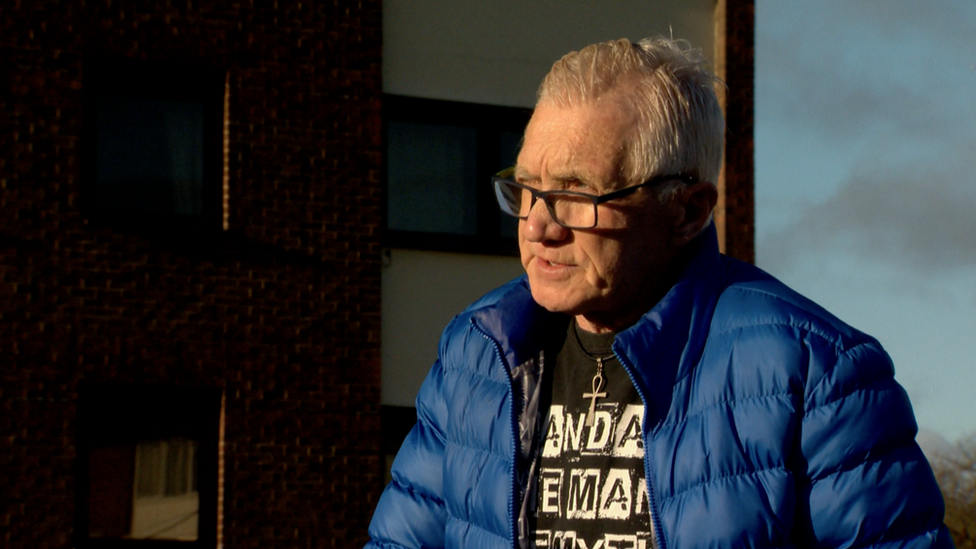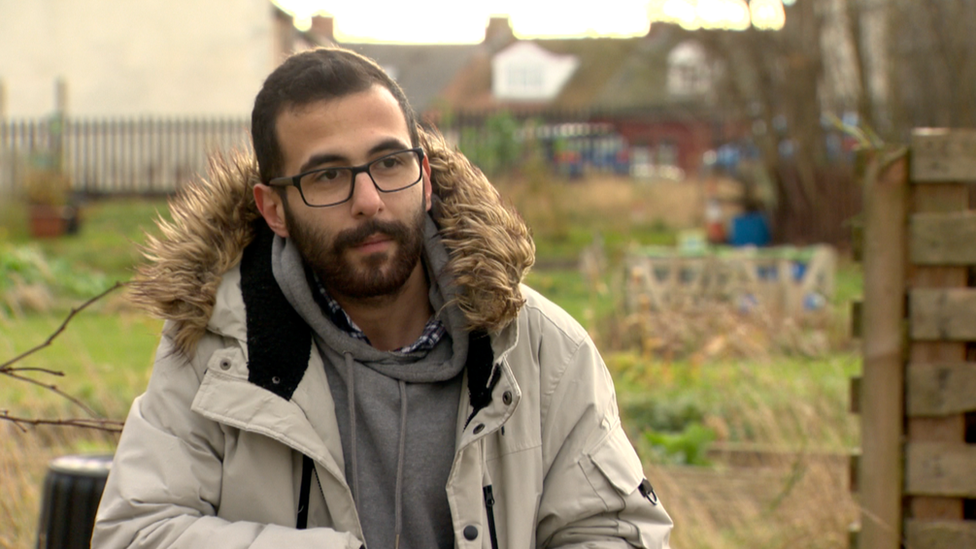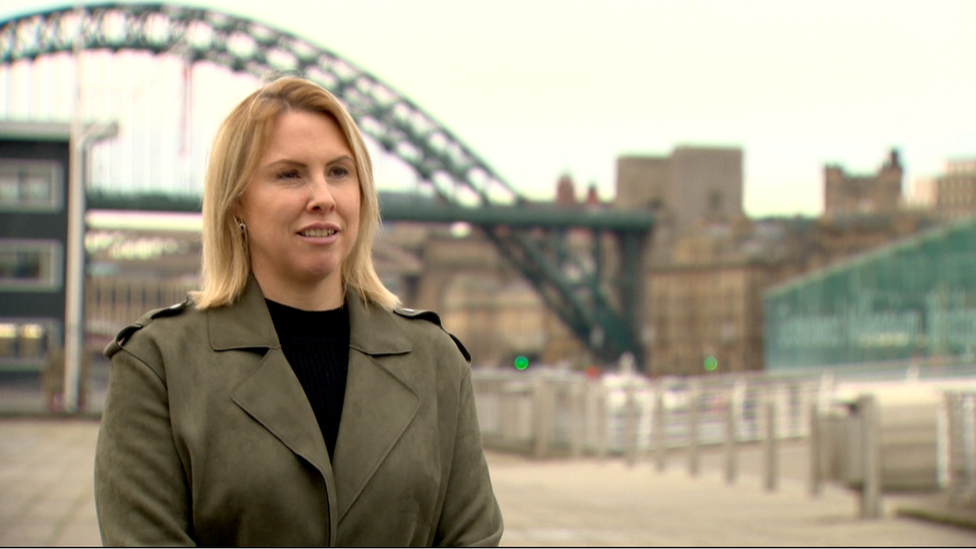Public health grant cuts 'worst in poorest areas'
- Published

Gateshead is home to some of the most deprived communities in the UK.
The poorest parts of England have seen the biggest cuts to councils' public health budgets, a new study suggests.
The Institute for Public Policy Research (IPPR) North analysis points out these regions have also been particularly hard hit by coronavirus.
Local authorities use the public health grant to fund stop smoking and weight loss programmes or sexual health care.
The government says over £10 billion has been given to local authorities to help them cope with the pandemic.
Since 2014, the IPPR North think tank says, the public health grant has been cut by around £13.20 per person across England.


Charlie Dixon has only recently got to know his neighbours through using a free food hub
In deprived communities like Bensham in Gateshead, poor housing and a lack of jobs are feeding ill health.
Cuts to public health projects targeting smoking, obesity or addiction haven't helped - say the IPPR.
Charlie Dixon, a former professional rock drummer, has lived in Bensham Court, a sheltered housing project in a tower block, for a decade but barely knew his neighbours.
He says that's all changed with the start of a free food hub that has helped end his feelings of isolation.
"I've been here all these years and I didn't know anybody, you know? Not even on my floor.
"I didn't know them to say hello to - I didn't know their names.
"Now I know all their names, everyone comes out and says, 'Hello Charlie' or 'Hello Fred'.
"You know it's great, it's fantastic."

But there is a significant amount of regional variation.
In the Midlands, the cut works out at £16.70 per person, while in the north it's £15.20 per person.
At a more regional level, the north east was worst affected, with cuts of £23.24 per person.
The cuts have exacerbated long standing health inequalities between rich and poor, north and south, says Anna Round, a senior research fellow at IPPR and one of the co-authors of the report.
"The north and the Midlands are the areas with the worst levels of health, so obviously it's worrying that some of that investment in making health better has actually been cut most in the areas that most need it.
"That cut has led to the reduction in some of those really important programmes that get to work on the things that cause ill health.
"So programmes like drug and alcohol reduction, things to help reduce rates of obesity and smoking."


Hossein says the community project he's involved in changed his life
In Gateshead, the Comfrey Garden project offers refugees and asylum seekers skills training as well as giving them greater confidence and purpose.
Hossein Elahi Boroujeni, a refugee from Iran, started attending courses at the project, then became a volunteer and now works there as a paid employee.
He says: "When you're at home and you don't have anything to do, basically you feel lonely.
"When I came here I could see life is going on for people who are in the same situation as me.
"So it was really helpful to see; 'oh there are other people in the same situation as me and they go forward, so why not me?'
"You can't imagine how difficult it can be, when you are in an area you don't know, you don't have any friends or family, and also you cannot speak the language other people speak.
"But I find a job, in this project they offer me a job.
"You can see how different my life can be with Comfrey Project and without Comfrey Project."

Gateshead in the north east of England is home to some of the most deprived communities in the UK.
Alice Wiseman, local director of public health, Covid-19 had "shone a further light" on inequalities.
"We know people from our most disadvantaged communities are more likely to be working in front line occupations and therefore exposed to Covid," she said.

Public health director Alice Wiseman says disadvantaged communities have been hardest hit by Covid.
"But we also know that they are more likely to have the underlying conditions that make them have an increased risk of a severe form of Covid, and sadly death.
"Nationally, we know twice as many people have died in our most disadvantaged communities than our most affluent, and for me that isn't acceptable."
A spokeswoman for the Department for Health and Social Care in England said it had "a strong track record on public health", with smoking levels are at an all-time low, more people than ever being tested for sexually transmitted infections and the launch of an obesity strategy.
She added that the recent Spending Review had committed to maintaining the public health grant - and that £10 billion had been provided to councils to help cope with the pandemic.